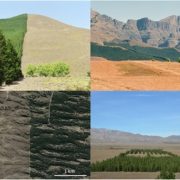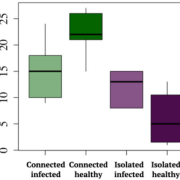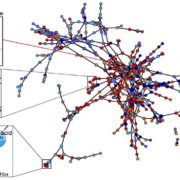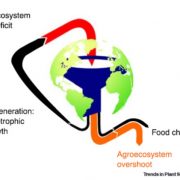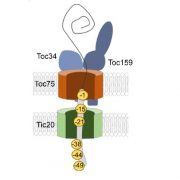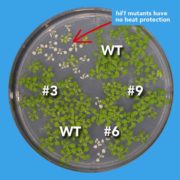Hidden shift of the ionome of plants exposed to elevated CO2 depletes minerals at the base of human nutrition
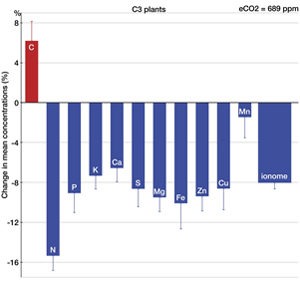 eLife. Free air CO2 enrichment (FACE) has been used to surround plants with an elevated concentration of CO2 (eCO2) during growth, and has consistently conferred an increase in carbon assimilation and plant productivity. However, the effect of eCO2 on nutrient status of the plant is unclear due to the difficulties in accurately measuring low-abundance compounds and minerals, and mis-interpretation of data due to lack of statistical power. Loladze used only data with a statistical power >0.4 to demonstrate that the clear majority of elements assayed (except carbon and manganese) showed a decline at eCO2 (between 6.5 and 10%), a pattern repeated when restricting samples to foliar or edible tissues. The same effect is seen for both FACE and non-FACE studies, and appears consistent across various geographical sites. It is also consistent across different plant groups, including cereals like wheat and rice, which together provide 40% of the global daily calorie intake. This insight raises important questions for the future of crop production in a changing climate, and provides additional challenges for crop breeders and biotechnologists. (Summary by Mike Page) eLife. 10.7554/eLife.02245
eLife. Free air CO2 enrichment (FACE) has been used to surround plants with an elevated concentration of CO2 (eCO2) during growth, and has consistently conferred an increase in carbon assimilation and plant productivity. However, the effect of eCO2 on nutrient status of the plant is unclear due to the difficulties in accurately measuring low-abundance compounds and minerals, and mis-interpretation of data due to lack of statistical power. Loladze used only data with a statistical power >0.4 to demonstrate that the clear majority of elements assayed (except carbon and manganese) showed a decline at eCO2 (between 6.5 and 10%), a pattern repeated when restricting samples to foliar or edible tissues. The same effect is seen for both FACE and non-FACE studies, and appears consistent across various geographical sites. It is also consistent across different plant groups, including cereals like wheat and rice, which together provide 40% of the global daily calorie intake. This insight raises important questions for the future of crop production in a changing climate, and provides additional challenges for crop breeders and biotechnologists. (Summary by Mike Page) eLife. 10.7554/eLife.02245


